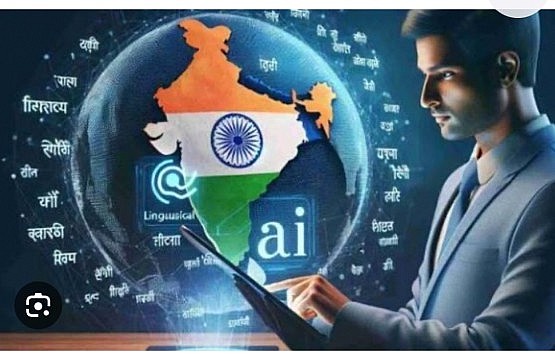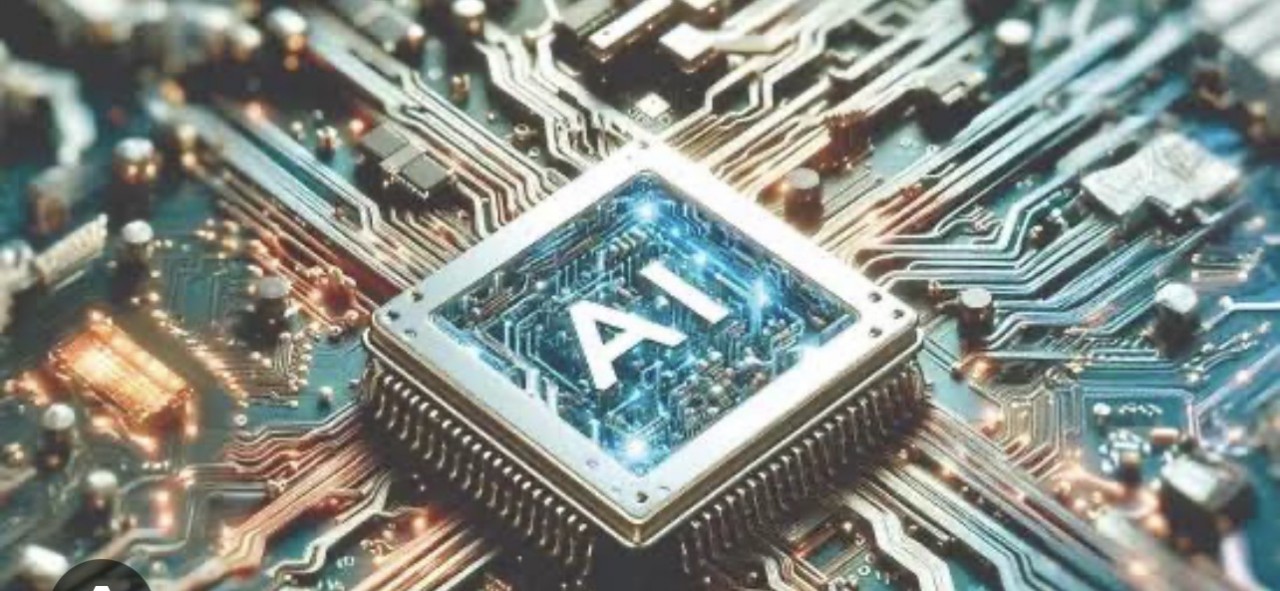India’s model for AI development: Transforming healthcare and education
 |
AI in healthcare: A revolution in access and efficiency
India’s healthcare system has always been tasked with the dual challenge of catering to a massive population while maintaining affordability and accessibility. AI is helping the nation bridge this gap by empowering healthcare providers with advanced tools that enhance diagnosis, treatment, and patient care.
One of the most significant transformations is in diagnostics. AI-powered platforms are now capable of analysing X-rays, CT scans, and MRI images with incredible speed and accuracy.
Indian startups, in collaboration with hospitals and research institutions, have developed AI tools that assist radiologists in detecting early signs of diseases such as tuberculosis, cancer, and cardiovascular conditions.
These tools are not replacing doctors; instead, they are augmenting their abilities, reducing errors, and ensuring early intervention.
Telemedicine, another AI-enabled domain, has become a lifeline for millions living in remote areas.
Through natural language processing and machine learning, virtual assistants can now interact with patients in multiple Indian languages, gather preliminary health data, and connect them to doctors for consultations.
This not only reduces the pressure on urban hospitals but also ensures that rural populations receive timely care.
AI is also making inroads into drug discovery and personalised medicine. By analysing large datasets of genetic information and medical histories, AI systems are helping researchers design targeted treatments for individuals.
This approach is moving healthcare away from a one-size-fits-all model and toward a future where therapies are tailored for maximum effectiveness.
Government-backed initiatives such as the Ayushman Bharat Digital Mission are providing fertile ground for AI adoption.
By creating a digital health ecosystem, India is enabling seamless integration of AI solutions into patient records, treatment protocols, and healthcare delivery. This model is inspiring many developing nations that are looking at India as an example of how to balance scale with innovation.
AI in education: Democratising learning
Education is the cornerstone of a nation’s progress, and India’s embrace of AI in this sector reflects its commitment to empowering its youth.
With a student population running into hundreds of millions, India has turned to AI to personalise and democratize learning at a scale unmatched in the world.
AI-powered platforms are transforming classrooms into dynamic spaces where learning adapts to the needs of each student.
Adaptive learning software can assess a child’s strengths, weaknesses, and pace of learning, then tailor lessons accordingly.
For example, a student struggling with mathematics can receive more practice problems, interactive tutorials, and instant feedback, while another student excelling in the subject can move ahead to advanced topics. This personalised approach ensures no child is left behind, regardless of their learning level.
Language learning is another area where AI is making a profound impact. In a linguistically diverse country like India, AI-driven translation and speech recognition tools are helping bridge the language divide.
Students in rural areas, who may not be fluent in English, can now access high-quality educational content in their mother tongues. This inclusivity not only preserves cultural identity but also ensures equal opportunities for learning.
Teachers, too, are benefiting from AI tools. Automated grading systems, virtual teaching assistants, and intelligent dashboards are reducing the administrative burden on educators, giving them more time to focus on mentoring and interactive teaching.
Moreover, AI-based analytics are providing insights into classroom trends, helping educators design more effective curricula.
The government’s flagship initiative, PM eVIDYA, which leverages AI-based platforms to deliver digital education, has already made significant strides in reaching millions of students across the country.
Combined with private sector innovations, this ecosystem is ensuring that even students in the remotest villages can access the same quality of education as those in metropolitan cities.
Building an inclusive AI ecosystem
What makes India’s model unique is not just the adoption of AI but the vision of inclusivity driving it.
By focusing on healthcare and education, India is ensuring that AI benefits reach the most fundamental aspects of people’s lives. Instead of being confined to luxury services or niche industries, AI in India is being used to solve everyday challenges.
This vision is supported by a thriving ecosystem of startups, research institutions, and government initiatives.
Indian AI startups are not only innovating for local challenges but also exporting their solutions to global markets.
The synergy between government policies, private investment, and academic research is creating a virtuous cycle that accelerates innovation while ensuring ethical deployment.
India’s vast talent pool is another cornerstone of its AI success. With millions of young engineers, data scientists, and entrepreneurs entering the workforce, the country is well-equipped to lead the global AI race.
Programmes focused on AI skill development are preparing the next generation of professionals to design, deploy, and manage AI systems responsibly.
AI for people, AI for progress
India’s model of AI development demonstrates that technology, when guided by a clear vision, can be a force for social good.
By prioritising healthcare and education, the country is laying the foundation for a healthier, more knowledgeable, and empowered society.
Recommended
 Economy
Economy
The billions given to charity by ordinary Indians every year
 Economy
Economy
